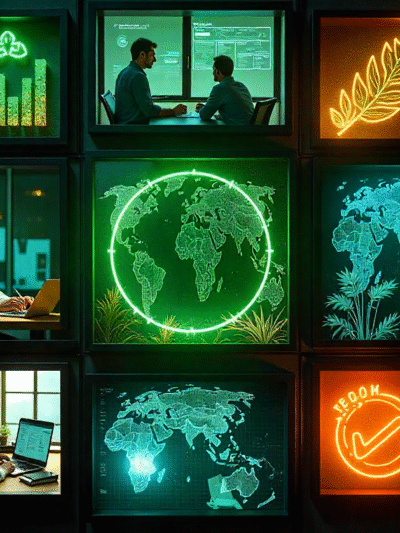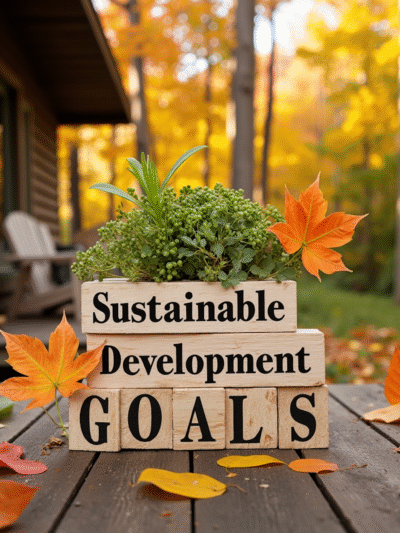Ethical vs Sustainable What’s the Difference and Why Does It Matter?. Understand the key differences and overlap between ethical and sustainable practices in conscious consumerism. Learn how these values impact your shopping choices and business decisions, why both matter for people and the planet, and tips for recognizing authentic brands that prioritize ethics and sustainability.
In the world of conscious consumerism, “ethical” and “sustainable” are two terms that often overlap—but they’re not the same.
Understanding the difference helps you make smarter choices and support brands that truly align with your values.
🌱 What Does “Sustainable” Mean?
Sustainability is about meeting today’s needs without compromising the ability of future generations to meet theirs. In business and shopping, this means:
- Using resources responsibly
- Reducing waste and pollution
- Minimizing carbon footprints
- Supporting long-term ecological balance
Sustainable practices include using renewable materials, minimizing packaging, and sourcing products locally to cut down on transport emissions. Businesses that focus on sustainability often optimize their operations for efficiency and environmental responsibility, which can also improve their visibility in search engines—especially as Google increasingly favors eco-friendly content and practices.
🤝 What Does “Ethical” Mean?
Ethical focuses on doing what’s right—especially for people and animals. Ethical businesses:
- Treat workers fairly (safe conditions, living wages)
- Respect human rights
- Uphold honest business practices
- Consider animal welfare
Ethical practices include paying fair wages, ensuring safe workplaces, avoiding child labor, and offering cruelty-free products. Transparency and honesty are key principles, whether in business operations or digital marketing (for example, ethical SEO practices avoid manipulation and focus on genuine value).
🔄 Where Do Ethical and Sustainable Overlap?
Many brands strive to be both ethical and sustainable, but the two are not always synonymous. Here’s how they intersect and differ:
| Ethical | Sustainable | Both |
|---|---|---|
| Fair wages & safe work | Renewable materials & low emissions | Organic, fair-trade coffee |
| No child labor | Waste reduction | Local, cruelty-free, zero-waste cosmetics |
| Animal welfare | Resource efficiency | Upcycled, ethically made fashion |
A truly conscious brand considers both people and the planet in every decision.
⚖️ Key Differences at a Glance
| Ethical | Sustainable |
|---|---|
| Focuses on PEOPLE and ANIMALS | Focuses on the PLANET and FUTURE GENERATIONS |
| Fair pay, safe work, animal rights | Resource use, pollution, long-term impact |
| Example: Fairtrade chocolate | Example: Compostable packaging |
🛒 Why Does This Matter for Shoppers and Businesses?
- For consumers: Understanding the difference between ethical and sustainable helps you shop in line with your values. For example, a bamboo toothbrush may be sustainable, but if it’s made in a factory with poor labor practices, it’s not ethical.
- For businesses: Prioritizing both ethics and sustainability builds trust, improves brand reputation, and aligns with growing consumer demand for transparency and responsibility.
🌍 How to Choose: Ethical, Sustainable, or Both?
Tips for conscious choices:
- Look for certifications: Fairtrade, B Corp, Rainforest Alliance, and similar labels signal ethical and/or sustainable standards.
- Read brand stories: Transparent brands share details about their sourcing, labor, and environmental efforts.
- Ask questions: Don’t hesitate to reach out to brands for more information.
💡 Final Thoughts
Ethical and sustainable aren’t the same—but together, they create a powerful force for good. Supporting brands that care for both people and the planet means every purchase is a step toward a better future.
Ready to discover ethical and sustainable businesses near you?
Explore MyGreenDirectory and make your next choice count!
Disclaimer
Content on MyGreenDirectory.com is for informational purposes only and may include affiliate links, which earn us a commission at no extra cost to you —helping support our mission to promote green living.. We only recommend products and services that align with our sustainable values. While we aim to highlight sustainable businesses, products, and services, we encourage all users to independently verify claims, certifications, and practices before making any decisions or purchases. This site is not a substitute for professional advice—please consult experts for health, legal, financial, or environmental decisions. Use the information at your own risk. We aren’t liable for any damages from using this site.





Comments